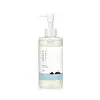What's inside
What's inside
 Key Ingredients
Key Ingredients

 Benefits
Benefits

 Concerns
Concerns

 Ingredients Side-by-side
Ingredients Side-by-side

Water
Skin ConditioningGlycerin
HumectantSodium Cocoyl Glycinate
CleansingSodium Lauroyl Glutamate
Butylene Glycol
HumectantCoco-Betaine
CleansingBetaine
HumectantHydroxypropyl Starch Phosphate
Artemisia Vulgaris Extract
Skin ConditioningAspartic Acid
MaskingCitric Acid
BufferingSodium Chloride
MaskingCaprylyl Glycol
EmollientPolyquaternium-67
Artemisia Princeps Leaf Extract
Skin ConditioningMelia Azadirachta Leaf Extract
Skin ConditioningMalt Extract
Skin Protecting1,2-Hexanediol
Skin ConditioningMelia Azadirachta Flower Extract
Skin ConditioningCamellia Sinensis Leaf Extract
AntimicrobialSalvia Officinalis Oil
MaskingEthylhexylglycerin
Skin ConditioningAllantoin
Skin ConditioningMadecassoside
AntioxidantPanthenol
Skin ConditioningAsiaticoside
AntioxidantAsiatic Acid
Skin ConditioningWater, Glycerin, Sodium Cocoyl Glycinate, Sodium Lauroyl Glutamate, Butylene Glycol, Coco-Betaine, Betaine, Hydroxypropyl Starch Phosphate, Artemisia Vulgaris Extract, Aspartic Acid, Citric Acid, Sodium Chloride, Caprylyl Glycol, Polyquaternium-67, Artemisia Princeps Leaf Extract, Melia Azadirachta Leaf Extract, Malt Extract, 1,2-Hexanediol, Melia Azadirachta Flower Extract, Camellia Sinensis Leaf Extract, Salvia Officinalis Oil, Ethylhexylglycerin, Allantoin, Madecassoside, Panthenol, Asiaticoside, Asiatic Acid
Ethylhexyl Stearate
EmollientSorbeth-30 Tetraoleate
EmulsifyingDiisostearyl Malate
EmollientEthylhexylglycerin
Skin ConditioningWater
Skin ConditioningOenothera Biennis Oil
EmollientLimnanthes Alba Seed Oil
Skin ConditioningPersea Gratissima Oil
Skin ConditioningVitis Vinifera Seed Oil
EmollientCanola Oil
EmollientMacadamia Integrifolia Seed Oil
Skin ConditioningSea Water
HumectantButylene Glycol
HumectantAllantoin
Skin ConditioningPanthenol
Skin Conditioning1,2-Hexanediol
Skin ConditioningCaprylic/Capric Triglyceride
MaskingPhosphatidylcholine
EmulsifyingHyaluronic Acid
HumectantCeramide NP
Skin ConditioningGlycine
BufferingHydrolyzed Hyaluronic Acid
HumectantGlutamic Acid
HumectantSerine
MaskingSodium Hyaluronate
HumectantLysine
Skin ConditioningAlanine
MaskingArginine
MaskingThreonine
Proline
Skin ConditioningCitrus Aurantium Bergamia Fruit Oil
MaskingSalvia Officinalis Oil
MaskingTocopherol
AntioxidantEthylhexyl Stearate, Sorbeth-30 Tetraoleate, Diisostearyl Malate, Ethylhexylglycerin, Water, Oenothera Biennis Oil, Limnanthes Alba Seed Oil, Persea Gratissima Oil, Vitis Vinifera Seed Oil, Canola Oil, Macadamia Integrifolia Seed Oil, Sea Water, Butylene Glycol, Allantoin, Panthenol, 1,2-Hexanediol, Caprylic/Capric Triglyceride, Phosphatidylcholine, Hyaluronic Acid, Ceramide NP, Glycine, Hydrolyzed Hyaluronic Acid, Glutamic Acid, Serine, Sodium Hyaluronate, Lysine, Alanine, Arginine, Threonine, Proline, Citrus Aurantium Bergamia Fruit Oil, Salvia Officinalis Oil, Tocopherol
 Reviews
Reviews

Ingredients Explained
These ingredients are found in both products.
Ingredients higher up in an ingredient list are typically present in a larger amount.
1,2-Hexanediol is a synthetic liquid and another multi-functional powerhouse.
It is a:
- Humectant, drawing moisture into the skin
- Emollient, helping to soften skin
- Solvent, dispersing and stabilizing formulas
- Preservative booster, enhancing the antimicrobial activity of other preservatives
Allantoin is a soothing ingredient known for its protective and moisturizingg properties. Because of this, it is often added to products with strong active ingredients.
Studies show higher concentrations of this ingredient can promote wound healing.
Though it can be derived from the comfrey plant, allantoin is produced synthetically for cosmetic products to ensure purity.
Learn more about AllantoinButylene Glycol (or BG) is used within cosmetic products for a few different reasons:
Overall, Butylene Glycol is a safe and well-rounded ingredient that works well with other ingredients.
Though this ingredient works well with most skin types, some people with sensitive skin may experience a reaction such as allergic rashes, closed comedones, or itchiness.
Learn more about Butylene GlycolEthylhexylglycerin (we can't pronounce this either) is commonly used as a preservative and skin softener. It is derived from glyceryl.
You might see Ethylhexylglycerin often paired with other preservatives such as phenoxyethanol. Ethylhexylglycerin has been found to increase the effectiveness of these other preservatives.
Panthenol is a common ingredient that helps hydrate and soothe the skin. It is found naturally in our skin and hair.
There are two forms of panthenol: D and L.
D-panthenol is also known as dexpanthenol. Most cosmetics use dexpanthenol or a mixture of D and L-panthenol.
Panthenol is famous due to its ability to go deeper into the skin's layers. Using this ingredient has numerous pros (and no cons):
Like hyaluronic acid, panthenol is a humectant. Humectants are able to bind and hold large amounts of water to keep skin hydrated.
This ingredient works well for wound healing. It works by increasing tissue in the wound and helps close open wounds.
Once oxidized, panthenol converts to pantothenic acid. Panthothenic acid is found in all living cells.
This ingredient is also referred to as pro-vitamin B5.
Learn more about PanthenolSalvia Officinalis Oil is an oil.
Water. It's the most common cosmetic ingredient of all. You'll usually see it at the top of ingredient lists, meaning that it makes up the largest part of the product.
So why is it so popular? Water most often acts as a solvent - this means that it helps dissolve other ingredients into the formulation.
You'll also recognize water as that liquid we all need to stay alive. If you see this, drink a glass of water. Stay hydrated!
Learn more about Water